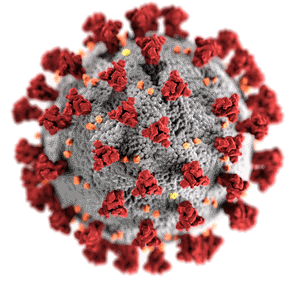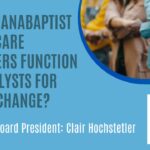COVID-19 Resources for Living
Handout for Anabaptist Communities AnnotatedTips for Living during the COVID-19 Pandemic
The following list was compiled following the MHF Webinar Discussion on COVID-19 held on March 30, 2020. It is presented as a downloadable one page sheet in PDF. If you find it helpful, please share with your faith communities. The rest of this page lists some annotated resources that correspond to the points on the list. Click on the gray bar toggles for more resources.
1. Please take care of yourself. Sleep, exercise, eat healthy foods, breathe deeply, and pray.
2. Wash your hands. Don’t touch your face.
Resources for self-care
3. Practice social distancing and stay home.
Resources on Community and Social Distancing
From Sojourners:
1. Community Without Communing: Resources for Virtual Church
Digital pastors weigh in on shepherding congregations through quarantine.
2. The Time to Act Like a Community Is Now
COVID-19 is testing our understanding and commitment to our interdependence as the body of Christ.
3. The Church’s Role in a Pandemic
A pandemic of this magnitude is an opportunity to ask ourselves: What is the true function of community?
4. Our Church Doors Are Shut and Our Members Quarantined. Yet Grace Abounds
On March 7, Christ Church, Georgetown’s rector, Tim Cole, was diagnosed with COVID-19. Rev. Crystal Hardin speaks to her church’s response.
5. Protect Your Mental Health While Practicing Social Distancing
Most people battling depression already feel isolated.
6. The First Rule of Pastoring During an Outbreak: Tell the Truth
Do pastors have any unique responsibilities in the midst of an outbreak?
4. Give blood if you are able.
Giving blood
Visit the website of the Red Cross Blood Services for more information.
5. Give what money that you can.
Ideas for Giving
Give to organizations that help others:
- Mennonite Central Committee (MCC) for worldwide relief and service.
- Your local church still has financial commitments even if you can’t gather on Sunday mornings.
- Your local food bank or pantry. Food banks need an inflow of cash during this time.
- Homeless shelters.
- Groups providing cash assistance for things like rent and utilities.
- Consider your neighbor who is out of work.
Mennonite ethicist, Joe Kotva, makes these additional suggestions. (Edited and supplemented by the MHF Office.)
- Meals on Wheels America.
- The One Fair Wage Emergency Fund.
- Feeding America.
- World Central Kitchen.
- The late night television shows have been doing an amazing job of finding charities that target specific groups/needs, including hotel and restaurant service workers and health care staff lacking adequate protective gear. If someone has the time and energy to go back through the shows to list and vet the charities, please email the MHF Office.
- It appears that college student need is going unaddressed by the CARES act. Contact your local college or university.
- There are estimates that 25% of all K-12 age students are food insecure. In Northern Indiana, Cultivate Food Rescue has developed a unique program to “rescue” food and direct it to kids.
- Some grocery stores also have low-key programs that allow churches and community groups to salvage edible food that would otherwise be dumped. Check locally.
6. Reach out to individuals who are isolated for a long time–elderly, immunocompromised, cancer patients.
Outreach ideas to individuals
- Ask how you can help them or just say “hi.”
- Don’t go into retirement homes, as you might be asymptomatically spreading the disease.
- Instead, call, text, email, or write a letter.
7. Reach out to your local hospital, healthcare provider, food banks, or homeless shelters to see how you can help them by providing homemade masks or other protective equipment.
Outreach ideas to your community
Consider making masks for persons in your community.
Please understand that it is generally thought that a homemade mask is more to keep the person wearing the mask from spreading the virus to others and does not necessarily protecting the person wearing it from getting infected.
Educate yourself on the issue of facemasks.
- CDC strategy on use of face masks. Original recommendation.
- New! Use of Cloth Face Coverings to Help Slow the Spread of COVID-19 On April 9, the CDC released guidance on the use and making of cloth face coverings. The guidance includes how to ensure proper fit, when to wear, and how to launder. Instruction is also provided on how to make the face coverings through a sewn or no sew technique.
- Article: “Wear a Mask. No, Don’t Wear a Mask. Wait: Yes, Wear a Mask.”
- Article: “Answers to your DIY face mask questions, including what material you should use”
Sample facemask patterns and instructions.
- Deaconess health system was an early requester of homemade face masks.
- JOANN Fabrics and Crafts has a campaign for 100 million masks.
- Article in New York Times: “How to Sew a Face Mask: A tutorial on how to make your own fabric face mask from common household materials.”
- Many other efforts exist on social media.
Now that the CDC is recommending the use of facemasks when you absolutely need to go out, cooperate with sewing people in your local community to provide masks for those who need them.
The best plan is to ask your local hospital, health system, or other organization that might need them.
8. Buy a gift certificate to a local store or restaurant.
Why buy a gift certificate?
Locally owned and operated businesses are crucial to the health of your local economy. Being closed and not able to pay workers puts an extra strain on these small businesses. Buying a gift certificate now, even one you don’t intend to use, helps a local businesses with their cash flow during this difficult time.
9. Consider increasing your garden this year while intentionally thinking about who could benefit from your harvest.
Gardening ideas
Can you contribute ideas?
10. Pray and meditate.
Prayer and Meditation Resources
Mennonite Healthcare Fellowship Board President, Clair Hochstetler, suggests there actually many good sites for healthcare practitioners’ spiritual and emotional grounding during this pandemic crisis.
He suggests three for the MHF community.
- Personal meditation. Meditation Oasis, is a goldmine guided meditations which Clair has utilized over the past several years both professionally in health care and for personal use to provide calm and spiritual grounding during times of stress. During this Covid-19 pandemic they are making their app available for free.
- Prayers in a medical context. Here is an excellent set of prayers written specifically for people in a medical context created and collected by chaplains working at Cincinnati Children’s hospital. Download PDF document.
- Spiritual sustenance in an Anabaptist / Mennonite theological context. AMBS (Associated Mennonite Biblical Seminary) has collated some wonderful resources to help us to stay “grounded in and sustained through God’s love, compassion and unfailing presence during the global COVID-19 outbreak.” Included are links to An Anabaptist Prayer Book, a Prayer App, and an online group which meets weekly and is open to anyone.
11. Have a conversation about “End of Life” with your family.
End of life conversation resources.
- Five Wishes. A site for healthcare organizations, businesses, communities, individuals, and families that many have found useful.
For more in-depth family conversations, Joe Kotva, Mennonite ethicist, recommends the following websites:
- The Conversation Project.
- Center for Practical Bioethics Advance Care Planning Resources. This site also includes resources specifically for African-American Faith Communities.
- Respecting Choices, the leader in this movement, is making some resources free during the pandemic. The limitation here is that many of these resources assume that a trained facilitator or a clinician is part of the conversation.
12. Give thanks and love your family as you never have loved them before!
 Featured Resources
Featured Resources
Two Special Podcasts!
- MennoHealth Cast Episode 6: Interview with Dr. Dan Nafziger, specialist in infectious diseases and epidemiology.
- MennoHealth Cast, Episode 7: Interview with Joe Kotva, PhD, bioethicist.
Web description. Direct link to podcast site on The Mennonite.
Support Mennonite Healthcare Fellowship
If you appreciate the services of Mennonite Healthcare Fellowship (MHF), consider making a contribution or becoming a member!

Annual Gathering 2021 Report
Annual Gathering 2021 was unlike any other Annual Gathering MHF has held! For one thing, due to ongoing concerns around COVID19 and the Delta surge, it was not feasible to meet in person this year. We could not give each other hugs after a long unprecedented year of...

NEW Podcast Episode: Social Epidemiology during the Pandemic, a Mennos in Medicine Special
Mennos in Medicine: Social epidemiology comes to life during a pandemic; An interview with Allison Ruark Allison Ruark discusses her first year of teaching epidemiology during a pandemic and life changes the pandemic has brought to her and her family, with a...

Annual Gathering goes VIRTUAL for 2021!
After much reflection, prayer, and hearing from our membership -- we have made the decision to gather virtually this year for Annual Gathering. With remaining uncertainty around the pandemic, while we felt we could host a safe gathering, we did not feel we could...










